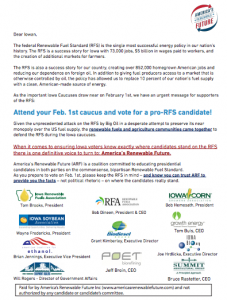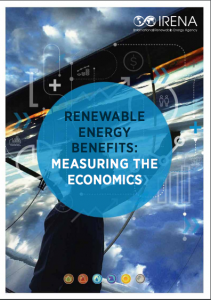“Today, Iowa’s renewable fuels industry – the entire renewable fuels industry quite frankly – is at a fork in the road. We must decide whether to retreat, or whether to fight for victory. I know we will not retreat. It is simply not in the farmers DNA. So we fight,” said Monte Shaw, executive director of the Iowa Renewable Fuels Association (IRFA) during the opening session of the 10th Annual Iowa Renewable Fuels Summit referring to the Renewable Fuel Standard (RFS). This legislation, said Shaw, is the key to long-term success of renewable fuels.
 “I know the renewable fuels industry will not waiver or retreat or surrender,” said Shaw. “It will continue to battle for market access and to tear down the bogus ‘blend wall.’ I know this because the renewable fuels industry has fought the odds for 35 years – and won.”
“I know the renewable fuels industry will not waiver or retreat or surrender,” said Shaw. “It will continue to battle for market access and to tear down the bogus ‘blend wall.’ I know this because the renewable fuels industry has fought the odds for 35 years – and won.”
He continued, “Keeping the RFS intact is key to near term biodiesel growth, the ability for cellulosic ethanol to have a chance to develop, and to pulling corn ethanol above 15 billion gallons per year. When the RFS finally breaches the artificial blend wall and major markets add the distribution infrastructure necessary for E15, ethanol use won’t increase by just that prescribed amount. Once the hole is in the dam, the octane value of corn ethanol will burst through – pulled by the RFS just as certainly as cellulosic ethanol and biodiesel.”
He also noted there is not a consensus to repeal nor modify the RFS in D.C. Do buy in to the narrative and choose the path of retreat because Big Oil is trying to win, he added.
To view Shaw’s selected prepared remarks, click here.









